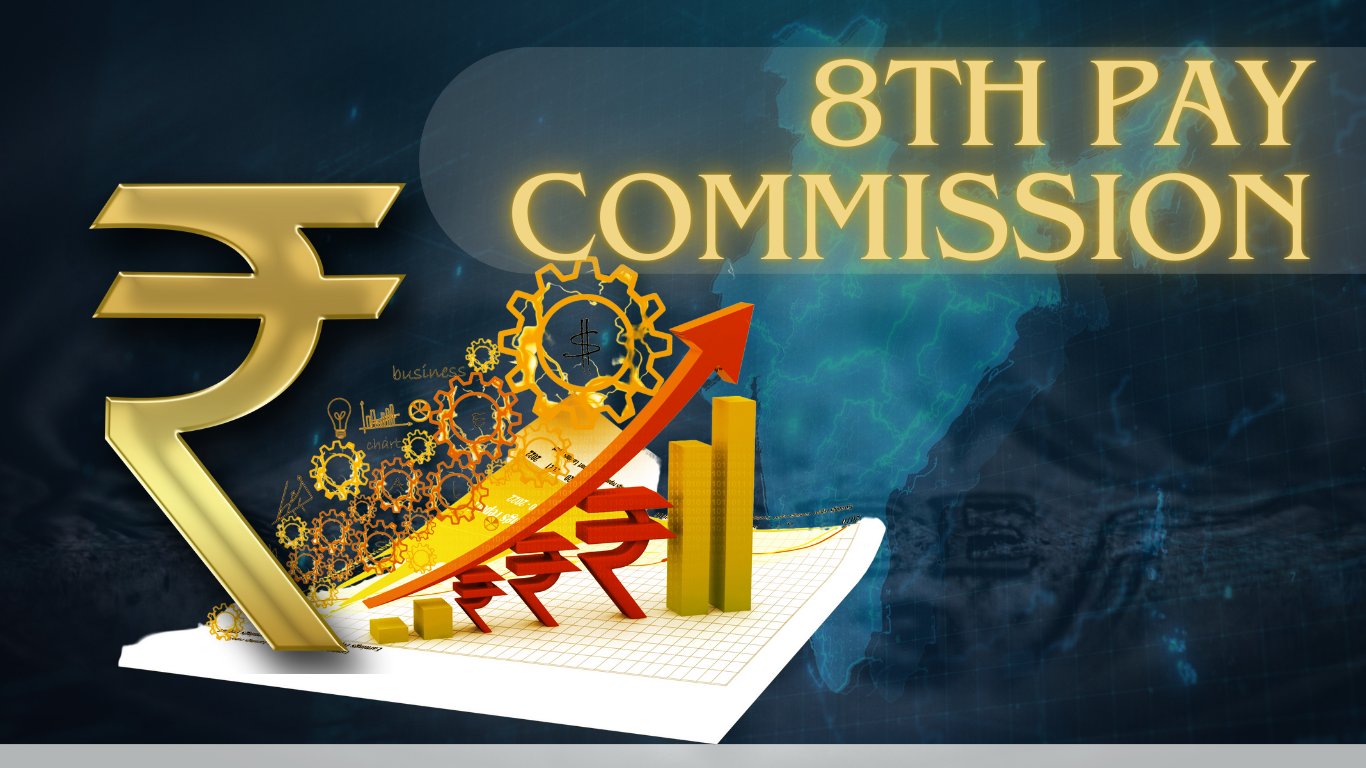Introduction: The 8th Pay Commission is a proposed initiative by the Government of India to revise the salary structures, allowances, and pension schemes for central government employees and pensioners. Constituted approximately every ten years, pay commissions are integral to ensuring equitable and inflation-adjusted remuneration for government employees.
Understanding the Pay Commission
A pay commission is a specialized body set up by the Indian government to review and recommend revisions to the salary and pension structures of government employees. The key objectives of such commissions are:
1. Addressing Inflation: Adjusting salaries to counter rising living costs.
2. Parliamentary Parity: Ensuring government compensation aligns with private-sector standards.
3. Job Satisfaction: Motivating employees by periodically revising remuneration structures.
4. Macroeconomic Considerations: Supporting broader economic growth by increasing purchasing power.
Since India’s independence in 1947, seven pay commissions have been established. Each has brought about significant changes in compensation structures, addressing the evolving needs of the workforce and the economic landscape.
Historical Trends in Pay Commission Recommendations
Historically, the implementation of pay commission recommendations has significantly influenced salary structures and government expenditure. For example:
|
Pay Commission |
Year Implemented |
Fitment Factor |
Impact on Salary |
|
5th Pay Commission |
1996 |
1.40 |
Moderate Increase |
|
6th Pay Commission |
2006 |
1.86 |
Significant Increase |
|
7th Pay Commission |
2016 |
2.57 |
Substantial Increase |
|
8th Pay Commission |
2026 (Expected) |
2.28–2.86 (Speculated) |
Projected Significant Hike |
The 7th Pay Commission introduced significant changes, including raising the minimum basic pay from ₹7,000 to ₹18,000, increasing pensions, and enhancing allowances. The 8th Pay Commission is expected to build upon this foundation, aiming to address new challenges in a rapidly evolving economic environment.
The 8th Pay Commission: Key Details
Constitution and Timeline: The Union Cabinet recently approved the establishment of the 8th Pay Commission. According to Minister of Information and Broadcasting Ashwini Vaishnaw, the commission’s setup process, including appointing a chairman and two members, will commence soon. While its implementation is expected in 2026, preparatory consultations with central and state governments and stakeholders will ensure timely recommendations.
Expected Focus Areas
The 8th Pay Commission is likely to emphasize:
- Inflation Adjustment: Salaries and allowances will be aligned with inflationary trends, improving the quality of life for employees.
- Fitment Factor Revisions: Serving as a multiplier for calculating revised basic pay, the fitment factor under the 8th Pay Commission is speculated to range between 2.28 and 2.86. This could result in a 40–50% hike in basic salaries.
- Allowance Revisions: A restructuring of revenue allowances and other benefits is expected alongside salary hikes.
- Multi-Sectoral Impact: From public sector undertakings (PSUs) to banking and engineering, the revisions are anticipated to have a far-reaching influence across sectors.
Sectoral Impacts
1. Central Government Employees and Pensioners: Approximately 49 lakh employees and 65 lakh pensioners stand to benefit from the revised salary and pension structures. The proposed reforms will address the growing demands for better compensation amidst rising inflation.
2. Public Sector Undertakings (PSUs): Maharatna and Navratna PSUs, such as ONGC and NTPC, are expected to revise salary structures significantly, thereby retaining top talent and ensuring competitive compensation.
3. Engineers in Government Jobs: Organizations like ISRO, BARC, and Indian Railways are likely to witness an upward revision in salary packages, enhancing motivation and productivity among engineers.
4. Banking Sector Employees: Public sector banks may also adopt pay commission recommendations, leading to better remuneration and benefits for employees in this sector.
Economic Implications
The implementation of the 8th Pay Commission will not only improve employee well-being but also stimulate economic growth through increased consumption. As government employees and pensioners benefit from higher disposable incomes, the multiplier effect will likely boost demand across sectors, contributing to the nation’s GDP growth. However, the government must also balance the fiscal burden associated with higher expenditures, as seen during the implementation of the 7th Pay Commission, which led to a ₹1 lakh crore increase in fiscal outlays.
Challenges and Considerations
1. Inflation Management: While the revised salaries will offset inflation for employees, the increased liquidity in the economy could exert upward pressure on prices, necessitating effective monetary policies.
2. Fiscal Responsibility: Balancing the demands of government employees with the need for fiscal discipline remains a critical challenge. The government must ensure that the pay commission’s recommendations do not compromise long-term economic stability.
3. Stakeholder Consultations: Effective dialogue with central and state governments, employee unions, and other stakeholders will be essential for formulating equitable recommendations that address diverse concerns.
Conclusion
The 8th Pay Commission represents a pivotal step toward ensuring fair and competitive compensation for central government employees and pensioners. By addressing inflationary pressures, enhancing allowances, and fostering multi-sectoral growth, the commission will play a crucial role in shaping India’s economic landscape. However, the government must strike a balance between employee welfare and fiscal prudence to ensure sustainable implementation. As preparations commence, the 8th Pay Commission offers a unique opportunity to realign compensation structures with the nation’s developmental aspirations.
| Main Question: Discuss the role of Pay Commissions in India in ensuring equitable remuneration for government employees. How do their recommendations impact the fiscal policies of the government? |







